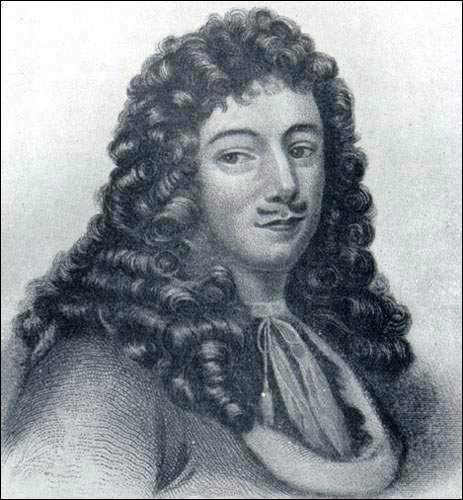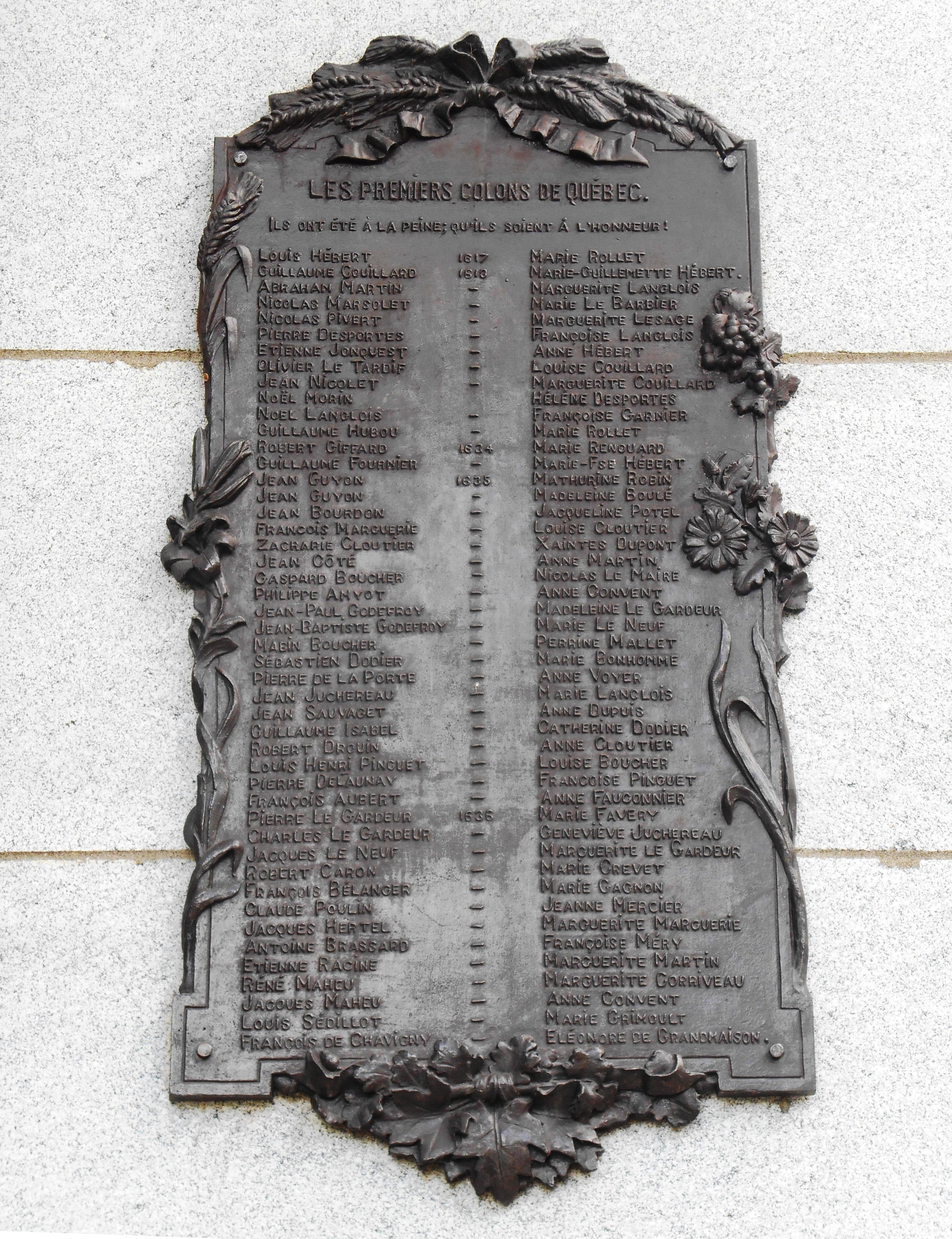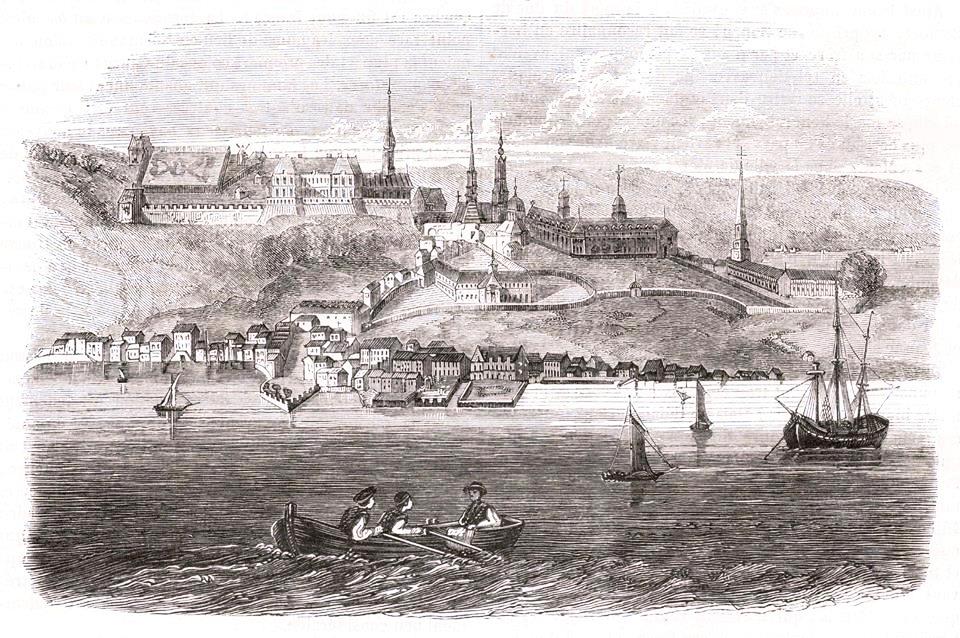|
Charles Aubert De La Chesnaye
Charles Aubert de La Chesnaye (; 12 February 1632 – 20 September 1702) was a French businessman active in Canada. The richest financier and businessman in New France, he played an important part in the colony's economic life (such as its trade, finance, fur trade, fishing and agriculture), owned several seigneuries and was a member of the Sovereign Council of New France. In 1682 he founded the (largely unsuccessful) ''Compagnie du Nord'' to compete with the Hudson's Bay Company. He has been called "the principal businessman and the greatest landowner of the colony".City of Quebec – biography Several places in the Quebec province and |
New France
New France (, ) was the territory colonized by Kingdom of France, France in North America, beginning with the exploration of the Gulf of Saint Lawrence by Jacques Cartier in 1534 and ending with the cession of New France to Kingdom of Great Britain, Great Britain and History of Spain (1700–1808), Spain in 1763 under the Treaty of Paris (1763), Treaty of Paris. A vast viceroyalty, New France consisted of five colonies at its peak in 1712, each with its own administration: Canada (New France), Canada, the most developed colony, which was divided into the districts of Quebec (around what is now called Quebec City), Trois-Rivières, and Montreal; Hudson Bay; Acadia in the northeast; Terre-Neuve (New France), Terre-Neuve on the island of Newfoundland (island), Newfoundland; and Louisiana (New France), Louisiana. It extended from Newfoundland to the Canadian Prairies and from Hudson Bay to the Gulf of Mexico, including all the Great Lakes of North America. The continent-traversing ... [...More Info...] [...Related Items...] OR: [Wikipedia] [Google] [Baidu] |
Sovereign Council Of New France
The Sovereign Council of New France (, ), or simply Sovereign Council (), was a governing body in New France. It served as both Supreme Court for the colony of New France, as well as a policy-making body, though this latter role diminished over time. The council, though officially established in 1663 by King Louis XIV of France, was not created from whole cloth, but rather evolved from earlier governing bodies. As early as 1647, a council of three was created by the King. In 1648, this council was enlarged to include five members. The Sovereign Council came to be known as the Superior Council (''Conseil Supérieur'') as early as June 16, 1703, when Louis XIV issued a royal edict referring to it as the Superior Council instead of its former name, and increasing the number of sitting Councilors from seven to twelve. The institution lasted from its introduction in 1663 to the fall of New France in 1760. Its last meeting occurred on April 28, 1760, the day of the Battle of Sainte-Foy ... [...More Info...] [...Related Items...] OR: [Wikipedia] [Google] [Baidu] |
Hudson's Bay Company
The Hudson's Bay Company (HBC), originally the Governor and Company of Adventurers of England Trading Into Hudson’s Bay, is a Canadian holding company of department stores, and the oldest corporation in North America. It was the owner of the namesake Hudson's Bay (department store), Hudson's Bay department stores (colloquially The Bay), and also owns or manages approximately of gross leasable real estate through its HBC Properties and Investments business unit. HBC previously owned the full-line Saks Fifth Avenue and off-price Saks Off 5th in the United States, which were spun-off into the Saks Global holding company in 2024. After incorporation by royal charter issued in 1670 by Charles II of England, King Charles II, the company was granted a right of "sole trade and commerce" over an expansive area of land known as Rupert's Land, comprising much of the Hudson Bay drainage basin. This right gave the company a monopoly, commercial monopoly over that area. The HBC functioned ... [...More Info...] [...Related Items...] OR: [Wikipedia] [Google] [Baidu] |
Quebec
Quebec is Canada's List of Canadian provinces and territories by area, largest province by area. Located in Central Canada, the province shares borders with the provinces of Ontario to the west, Newfoundland and Labrador to the northeast, New Brunswick to the southeast and a coastal border with the territory of Nunavut. In the south, it shares a border with the United States. Between 1534 and 1763, what is now Quebec was the List of French possessions and colonies, French colony of ''Canada (New France), Canada'' and was the most developed colony in New France. Following the Seven Years' War, ''Canada'' became a Territorial evolution of the British Empire#List of territories that were once a part of the British Empire, British colony, first as the Province of Quebec (1763–1791), Province of Quebec (1763–1791), then Lower Canada (1791–1841), and lastly part of the Province of Canada (1841–1867) as a result of the Lower Canada Rebellion. It was Canadian Confederation, ... [...More Info...] [...Related Items...] OR: [Wikipedia] [Google] [Baidu] |
Quebec City
Quebec City is the capital city of the Provinces and territories of Canada, Canadian province of Quebec. As of July 2021, the city had a population of 549,459, and the Census Metropolitan Area (including surrounding communities) had a population of 839,311. It is the twelfthList of the largest municipalities in Canada by population, -largest city and the seventh-List of census metropolitan areas and agglomerations in Canada, largest metropolitan area in Canada. It is also the List of towns in Quebec, second-largest city in the province, after Montreal. It has a humid continental climate with warm summers coupled with cold and snowy winters. Explorer Samuel de Champlain founded a French settlement here in 1608, and adopted the Algonquin name. Quebec City is one of the List of North American cities by year of foundation, oldest European settlements in North America. The Ramparts of Quebec City, ramparts surrounding Old Quebec () are the only fortified city walls remaining in the ... [...More Info...] [...Related Items...] OR: [Wikipedia] [Google] [Baidu] |
Persons Of National Historic Significance (Canada)
Persons of National Historic Significance (National Historic People) () are people designated by the Canadian government as being nationally significant in the history of the country. Designations are made by the Minister of the Environment on the recommendation of the Historic Sites and Monuments Board of Canada. Approximately 70 nominations are submitted to the board each year. A person is eligible to be listed 25 years after death, but Prime Ministers may be designated any time after death. Parks Canada administers the program, and installs and maintains the federal plaques commonly erected to commemorate each person, usually placed at a site closely associated with them. The intent is generally to honour the person's contribution to the country but is always to educate the public about that person. Canada has related programs for the designation of National Historic Sites and National Historic Events. Events, Sites, and Persons are each typically marked by a federal plaque ... [...More Info...] [...Related Items...] OR: [Wikipedia] [Google] [Baidu] |
Philippe-Joseph Aubert De Gaspé
Philippe-Joseph Aubert de Gaspé (; 30 October 1786 – 29 January 1871) was a Canadian lawyer, writer, and seigneur. He is known chiefly for his novel '' Les Anciens Canadiens'', considered the first classic of French Canadian fiction. Biography He was born in Quebec City in 1786, the son of seigneur Pierre-Ignace Aubert de Gaspé and Catherine Tarieu de Lanaudière, the daughter of seigneur Charles-François Tarieu de La Naudière. The Aubert de Gaspé family was distinguished, ennobled by Louis XIV in 1693. Philippe-Joseph's grandfather, Ignace-Philippe Aubert de Gaspé, fought under Louis-Joseph de Montcalm at Carillon (Ticonderoga). Later Joseph inherited the family estate on the St. Lawrence River. Philippe-Joseph studied at the Séminaire de Québec and served in the local militia, becoming captain. He studied law with Jonathan Sewell and then with Jean-Baptiste-Olivier Perrault and was called to the bar in 1811. After practising law until 1816, he was appointed s ... [...More Info...] [...Related Items...] OR: [Wikipedia] [Google] [Baidu] |
People Of New France
The term "the people" refers to the public or common mass of people of a polity. As such it is a concept of human rights law, international law as well as constitutional law, particularly used for claims of popular sovereignty. In contrast, a people is any plurality of persons considered as a whole. Used in politics and law, the term "a people" refers to the collective or community of an ethnic group or nation. Concepts Legal Chapter One, Article One of the Charter of the United Nations states that "peoples" have the right to self-determination. Though the mere status as peoples and the right to self-determination, as for example in the case of Indigenous peoples (''peoples'', as in all groups of indigenous people, not merely all indigenous persons as in ''indigenous people''), does not automatically provide for independent sovereignty and therefore secession. Indeed, judge Ivor Jennings identified the inherent problems in the right of "peoples" to self-determination, as i ... [...More Info...] [...Related Items...] OR: [Wikipedia] [Google] [Baidu] |
Canadian Fur Traders
Canadians () are people identified with the country of Canada. This connection may be residential, legal, historical or cultural. For most Canadians, many (or all) of these connections exist and are collectively the source of their being ''Canadian''. Canada is a multilingual and multicultural society home to people of groups of many different ethnic, religious, and national origins, with the majority of the population made up of Old World immigrants and their descendants. Following the initial period of French and then the much larger British colonization, different waves (or peaks) of immigration and settlement of non-indigenous peoples took place over the course of nearly two centuries and continue today. Elements of Indigenous, French, British, and more recent immigrant customs, languages, and religions have combined to form the culture of Canada, and thus a Canadian identity and Canadian values. Canada has also been strongly influenced by its linguistic, geographic, an ... [...More Info...] [...Related Items...] OR: [Wikipedia] [Google] [Baidu] |
History Of Quebec City
The history of Quebec City extends back thousands of years, with its first inhabitants being the First Nations peoples of the region. The arrival of French explorers in the 16th century eventually led to the establishment of Quebec City, in present-day Quebec, Canada. The city is one of the oldest European settlements in North America, with the establishment of a permanent trading post in 1608. It was officially incorporated as a city in 1832 and given its charter in 1840. French rule French explorer Jacques Cartier was the first European to ascend the St. Lawrence Gulf, claiming "Canada" for France (and the coming addition of a newly founded " Acadie" – known today as the province of Nova Scotia) to create a dominion known as New France. In 1535, Cartier and his crew first visited an Iroquois settlement of 500 people named Stadacona, in a site located in present-day Quebec City.Bumsted, J. M. Canada's Diverse Peoples: A Reference Sourcebook. Santa Barbara, CA: ABC-CLIO, 200 ... [...More Info...] [...Related Items...] OR: [Wikipedia] [Google] [Baidu] |
French Financiers
French may refer to: * Something of, from, or related to France ** French language, which originated in France ** French people, a nation and ethnic group ** French cuisine, cooking traditions and practices Arts and media * The French (band), a British rock band * "French" (episode), a live-action episode of ''The Super Mario Bros. Super Show!'' * ''Française'' (film), a 2008 film * French Stewart (born 1964), American actor Other uses * French (surname), a surname (including a list of people with the name) * French (tunic), a type of military jacket or tunic * French's, an American brand of mustard condiment * French (catheter scale), a unit of measurement * French Defence, a chess opening * French kiss, a type of kiss See also * France (other) * Franch, a surname * French Revolution (other) * French River (other), several rivers and other places * Frenching (other) * Justice French (other) Justice French may refer to: * C. ... [...More Info...] [...Related Items...] OR: [Wikipedia] [Google] [Baidu] |



